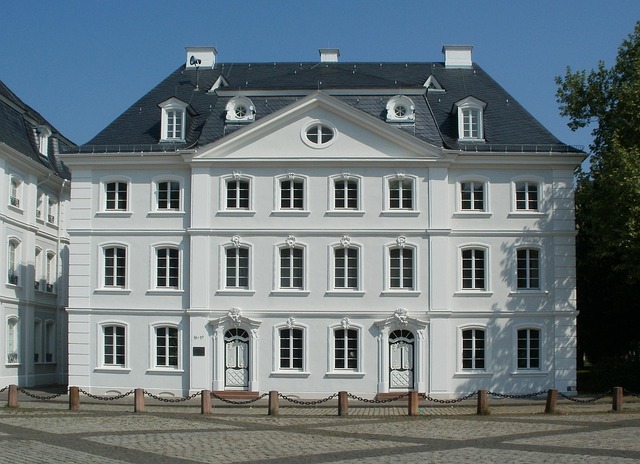Singapore's rental market for Executive Condominiums (ECs) presents a unique investment opportunity, appealing to both families upgrading from public housing and investors seeking profitable ventures. ECs offer a middle-ground between public and private housing, with benefits such as longer lease terms and family-friendly amenities like swimming pools and gyms. Rental yields are influenced by location, amenities, and the age of the property, with newer units typically fetching higher rents. The community living experience in ECs is a significant draw for tenants, especially given their strategic locations near public transport and shopping centers. Investors like the Tan and Lim families have successfully leveraged market analysis and property management to achieve high occupancy rates and rental yields by tailoring their offerings to the needs of young professionals and long-term renters. Compliance with HDB's eligibility criteria and regulations is crucial for both renters and investors, ensuring a smooth rental experience in line with Singapore's Master Plan developments. Strategic investment in ECs can lead to substantial returns for those who understand the market dynamics and apply informed, flexible strategies.
Navigating the nuances of property investment, particularly within the Executive Condominium (EC) segment in Singapore, offers a lucrative avenue for rental income. This article delves into the intricacies of EC rentals, shedding light on their unique position as a bridge between public and private housing. From understanding the evolution of ECs to exploring market trends and demographic preferences, this comprehensive guide will equip readers with insights into maximizing rental yields through efficient management strategies. Key legal considerations and eligibility factors ensure that investors are well-informed before venturing into this promising investment domain. Case studies highlight successful rental strategies that have stood the test of time in the dynamic Singapore property market.
- Understanding Executive Condominium (EC) Rentals: An Overview
- The Evolution of ECs: From Public to Private Housing
- Benefits of Renting Out Your Executive Condominium Unit
- Market Trends and Demand for EC Rentals in Singapore
- Maximizing Income: Tips for Efficient EC Rental Management
- Legal Considerations and Eligibility for EC Rental
- Case Studies: Successful EC Rental Strategies in Action
Understanding Executive Condominium (EC) Rentals: An Overview

Executive Condominium (EC) rentals present a unique segment within the Singaporean property market, offering a blend of public and private housing benefits. These properties are designed to cater to the needs of both upgrading families and investors alike. Unlike traditional condos, ECs provide a middle ground for individuals who aspire to move from public housing to a more luxurious living space without fulfilling the minimum occupation period required before they can sell their unit. For investors, renting out an EC can be a lucrative venture, given its appeal to families looking for spacious and affordably priced units. The rental yield potential of ECs is influenced by factors such as location, amenities, and the property’s age, with newer developments often commanding higher rents. Prospective tenants are typically young professionals or families who value the space and facilities that ECs offer, including swimming pools, gyms, and playgrounds. Understanding the nuances of EC rentals requires a grasp of their unique attributes, including their eligibility criteria and the resale market, which differ from those of traditional condos. This overview aims to shed light on the opportunities and considerations involved in renting out an Executive Condominium, making it a valuable read for landlords and investors interested in this property class within Singapore’s vibrant rental scene.
The Evolution of ECs: From Public to Private Housing

The concept of an Executive Condominium (EC) has undergone a significant transformation since its inception in Singapore’s public housing landscape. Initially designed to address the needs of middle-income families by offering a stepping stone from public to private property, ECs have evolved into a sought-after housing option with substantial rental income potential. Over the years, the eligibility criteria for purchasing an EC have been adjusted, reflecting the changing demographics and economic landscape. Today, Singaporeans aged 25 and above who are considering upgrading from public housing can opt for an EC as a first step towards private property ownership. These condominiums offer a mix of public and private housing features, including longer lease terms than HDB flats, which appeal to both investors and homeowners.
The rental market for ECs has seen robust growth, partly due to their strategic locations and the amenities they provide. As ECs mature, they often appreciate in value, making them an attractive investment for those looking to generate consistent rental income. The evolving policies surrounding ECs, such as the enhanced eligibility criteria and the introduction of deferred enforcement sale (DES) provisions, have further refined the market, ensuring its sustainability and attractiveness to both residents and investors alike. This evolution underscores the adaptability of ECs in meeting the diverse needs of Singapore’s population, making them a key component in the nation’s housing strategy.
Benefits of Renting Out Your Executive Condominium Unit

Navigating the real estate market can be a lucrative venture, and for residents of Singapore, Executive Condominiums (ECs) present an attractive opportunity for investment. Renting out your EC unit offers a multitude of benefits that align with both short-term financial goals and long-term wealth accumulation. Firstly, ECs are uniquely positioned within the housing market, offering the allure of a condominium lifestyle at a more affordable price point compared to private condos, which can make them particularly appealing to tenants looking for quality living spaces without the heftier price tag. This affordability factor can lead to a higher demand for your rental unit, potentially reducing vacancy periods and ensuring a steady stream of income.
Moreover, ECs come with various amenities such as swimming pools, gyms, and BBQ pits that are shared among residents, adding convenience and desirability for renters. The design and facilities of these units cater to a broad range of tenants, from young professionals to growing families. Additionally, the location of ECs is often well-considered, with many situated near transportation hubs, shopping centers, and educational institutions, which further enhances their appeal. This strategic positioning can translate into higher rental yields for investors, as the convenience and lifestyle that ECs offer are in sync with the needs of a diverse tenant pool. Investors thus have the potential to capitalize on both the rental income and the appreciation of the property over time, making an EC unit a sound investment choice in the vibrant real estate landscape of Singapore.
Market Trends and Demand for EC Rentals in Singapore

In recent years, the market for Executive Condominium (EC) rental properties in Singapore has experienced a dynamic shift, reflecting broader trends within the country’s real estate landscape. Prospective tenants, often young couples and families who are unable to meet the criteria for private condominiums yet, have shown a growing interest in EC rentals due to their affordability and the benefits of subsidy schemes. This increased demand has been further fueled by Singapore’s policy adjustments, which have made it easier for households to own an EC, thereby influencing the rental market positively. Investors have taken note of this trend, recognizing the potential for steady rental yields from these properties, which often come with larger living spaces and comprehensive facilities compared to HDB flats.
The rental yield for ECs has been competitive, especially when considering their strategic locations near public transportation nodes, shopping centers, and amenities. This accessibility, coupled with the transitional nature of ECs that bridge the gap between HDB flats and private condominiums, has made them a preferred choice among renters seeking a quality living experience without the higher price tag associated with fully privatized properties. As such, the rental market for ECs is expected to remain robust, underpinned by the ongoing demand from both young families and investors who are capitalizing on the unique position of Executive Condominiums in Singapore’s property ecosystem.
Maximizing Income: Tips for Efficient EC Rental Management

To maximize income from an Executive Condominium (EC) rental, it’s crucial to implement strategic management practices that optimize occupancy rates and tenant satisfaction. Firstly, conduct thorough market research to determine the optimal rent price for your EC, considering factors like location, amenities, and comparable properties in the vicinity. Setting a competitive rate can attract potential tenants while ensuring you’re receiving a fair market value for your rental.
Secondly, consider offering incentives to entice longer-term leases, such as reduced rent for extended stays or additional amenities that enhance tenant comfort and experience. Maintaining the property in top condition is also key; regular maintenance and updates can prevent costly repairs down the line and keep your EC attractive to renters. Additionally, leveraging online platforms and professional real estate services can expand your reach and streamline the rental process, ensuring your investment yields the highest possible return. Implementing these strategies can lead to a more profitable rental experience with an Executive Condominium ec.
Legal Considerations and Eligibility for EC Rental

navigating the rental market for an Executive Condominium (EC) requires a clear understanding of the legal framework and eligibility criteria set forth by Singapore’s housing and land development policies. Prospective tenants should be aware that ECs, which bridge the gap between public and private housing, come with specific rental stipulations. These include limitations on the lease duration, typically ranging from 2 to 6 years, as well as occupancy rules that dictate who can live in these units. It is imperative to familiarize oneself with the Housing & Development Board (HDB) guidelines, which govern the rental of ECs. For instance, only Singapore Citizens are eligible to rent an EC unit, and foreigners are permitted to do so under certain conditions. Additionally, the Minimum Occupation Period (MOP), which is three years from the date of key collection, must be observed before an EC can be rented out. Understanding these regulations is crucial for compliance and to avoid any legal repercussions that may arise from non-adherence. Prospective renters should also consider the Master Plan for Singapore, which outlines future developments that could affect the property’s value and rental potential over time. By keeping abreast of these legal considerations and eligibility requirements, investors and tenants can make informed decisions regarding EC rental income opportunities.
Case Studies: Successful EC Rental Strategies in Action

In the realm of property investment, Executive Condominium (EC) rental strategies have proven to be lucrative for savvy investors. One notable case study is that of the Tan family, who leveraged a strategic approach to EC rentals in an up-and-coming neighborhood. They conducted thorough market research to identify trends in demographic shifts and employment opportunities, which informed their decision to invest in a two-bedroom EC that catered to young professionals relocating for work. Their proactive engagement with property management services ensured consistent tenant occupancy and optimal rental yields.
Another case worth examining is the Lim family’s investment in an EC located near a major business hub. They focused on enhancing the unit’s appeal by staging it with modern furniture and high-end appliances, making it more attractive to tenants. Their efforts paid off as they secured long-term tenants, who valued the convenience and lifestyle the EC offered. The Lims also implemented a dynamic pricing strategy, adjusting rent based on seasonal demand and market conditions, which maximized their rental income over time. These case studies demonstrate the potential for high returns when investors apply strategic and data-driven approaches to Executive Condominium rental properties.
In conclusion, Executive Condominium (EC) rentals present a unique and lucrative opportunity within Singapore’s property market. The transition of ECs from public to private housing has opened new avenues for investors, underscored by the growing demand for such units. For those considering an EC as a rental investment, understanding the nuances of the market is paramount. By leveraging the insights provided in this article, from the evolution of ECs to the practical tips for efficient management, investors can maximize their rental income while navigating the legal framework and eligibility requirements. The case studies illustrate successful strategies that highlight the potential benefits of EC rentals. Ultimately, with careful planning and a comprehensive approach, investing in an EC can be a sound financial decision, offering both capital appreciation and steady rental yields for savvy investors.



